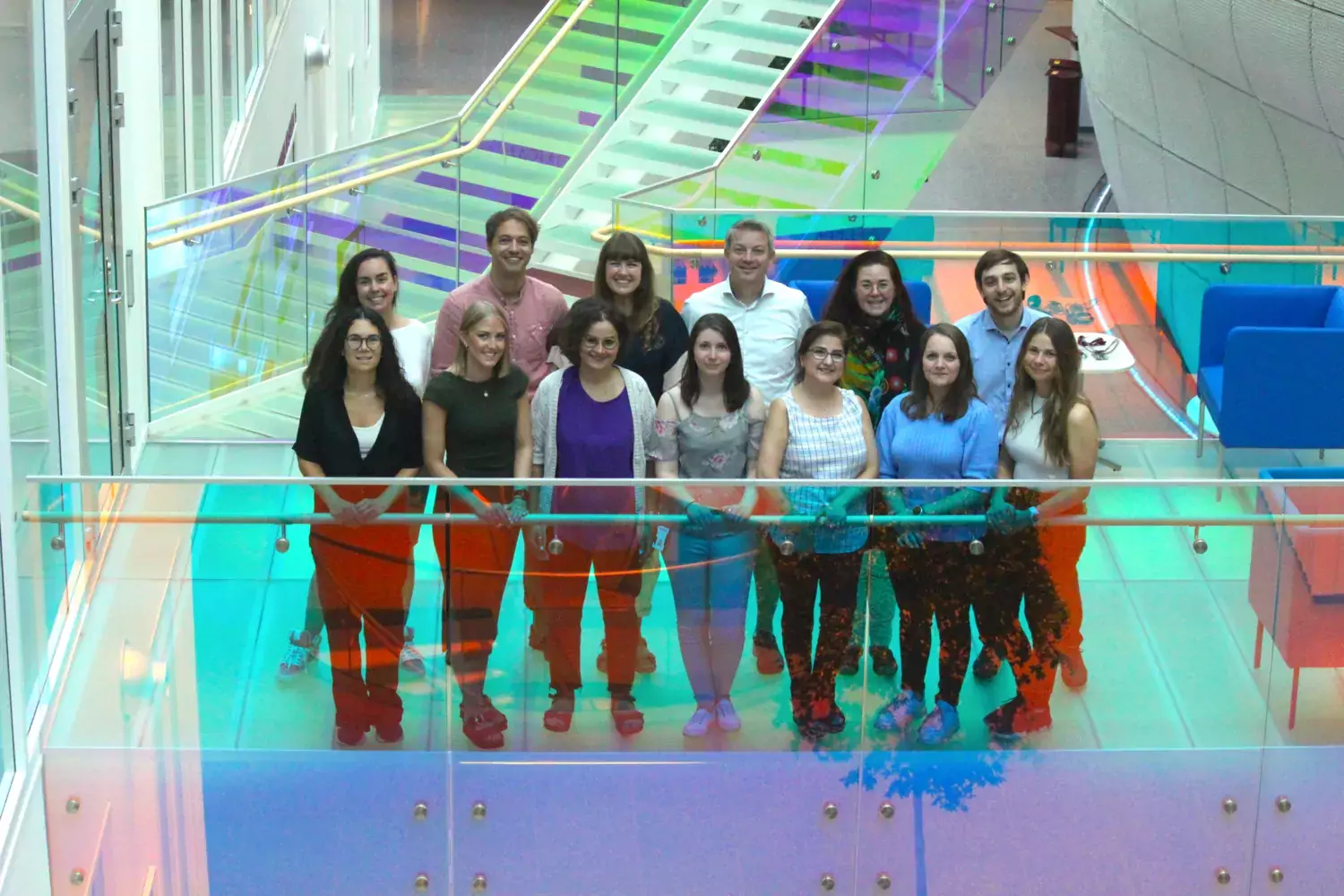Our laboratory is based at the Center for Hematology and Regenerative Medicine (HERM) at Karolinska University Hospital, Huddinge, which provides access to a wide range of cutting-edge technologies. To gain clinical and scientific insights into human diseases and ultimately fight cancer, we collaborate closely with clinicians and scientists at Karolinska Institutet, across Scandinavia and globally.
Our research
Our lab is focused on gaining molecular insights to the human immune system. One arm is dedicated to determining how inborn errors of immunity can result in life-threatening diseases and impaired immunosurveillance of cancer. We employ these insights to tailor personalized treatments of affected individuals. Another major research direction in our lab strives to understand the cytotoxic lymphocyte biology, and ultimately harness their potent activity to fight cancer.
Subsets of lymphocytes, such as cytotoxic T cells and natural killer (NK) cells, can kill infected or malignant cells. Individuals carrying mutations in genes required for such lymphocyte cytotoxicity develop life-threatening hyperinflammatory disorders, highlighting clinical relevance. In the most severe cases, clinical manifestation of patients with defective lymphocyte cytotoxicity are often triggered by viral infections and elicit uncontrolled immune cell proliferation and hyperinflammatory immune pathology, typically in childhood. In other cases, such mutations may predispose to cancer.
We have developed sensitive methods for quantification of human cytotoxic lymphocyte development and function, uncovering key mechanisms for their differentiation and cytotoxic activity. Furthermore, we have uncovered transcription factors that promote the differentiation of persistent T and NK cells with strong cytotoxic function. Harnessing the differentiation and function of cytotoxic lymphocytes represents a promising strategy for cellular immunotherapy of cancer.
Keywords
Cellular cytotoxicity, NK cells, cytotoxic T cells, cancer, primary immunodeficiencies, cancer immunotherapy
Collaborations
The research in Yenan Bryceson's group is performed with a number of national and international collaborators found in the list below.
- Dorina Avram, Moffit Cancer Center
- Kaan Boztug, CeMM
- Frank Cichocki, University of Minnesota
- Cynthia Dunbar, National Institutes of Health
- Stephan Ehl, University of Freiburg
- Olov Ekwall, University of Gothenburg
- Nelson Gekara, Stockholm University
- Jan-Inge Henter, Karolinska Institutet
- Jeffrey Klco, St Jude’s Hospital
- Claudia Kutter, Karolinska Institutet / SciLifeLab
- Eric Long, National Institutes of Health
- Jens Rettig, University of Saarland
- Lars Rönnblom, Uppsala University
- Anna Wedell, Karolinska Institutet
Projects
Current projects in the group encompass studies of cytotoxic lymphocyte development and activation, specifically focusing on the molecular mechanisms of granule release and differentiation. A specific interest is to harness insights for improved cellular immunotherapy of cancer. We also more generally study primary immunodeficiencies with high mortality or morbidity related to viral infections, autoimmunity, and cancer. Here we aim to understand disease pathophysiology and develop improved assays for identification of human immunodeficiencies associated with hyperinflammation or autoinflammation.
These projects employ advanced tools in molecular biology, cell manipulation and genome-editing, multiparameter flow cytometry, high-throughput sequencing and advanced cell imaging.

